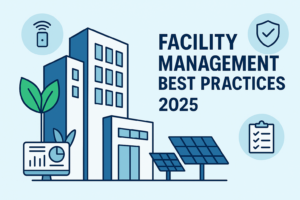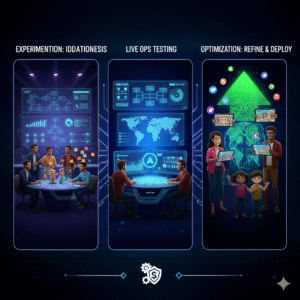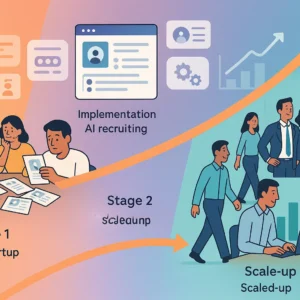
The rapid evolution of technology has redefined how buildings, properties, and facilities are managed. Today, smart property ecosystems are at the heart of modern real estate operations — combining automation, data analytics, and connectivity to deliver seamless management experiences. In this transformation, إدارة مرافق في الرياض plays a crucial role, bridging technology with human expertise to create efficient, sustainable, and intelligent environments.
Understanding Smart Property Ecosystems
A smart property ecosystem connects various systems — from lighting and HVAC to security and access control — under one digital framework. Using sensors, Internet of Things (IoT) devices, and cloud-based platforms, these ecosystems enable real-time data monitoring and remote control.
In cities like Riyadh, the integration of smart technologies with إدارة مرافق في الرياض has revolutionized how buildings are operated. Facility managers can now monitor energy usage, predict maintenance needs, and enhance tenant comfort from a single dashboard.
Meanwhile, إدارة الأملاك في الرياض complements this integration by ensuring that every property investment aligns with smart infrastructure strategies, helping owners and investors maintain long-term profitability and market competitiveness.
The Role of Facility Management in Smart Ecosystems
Modern facility management extends far beyond traditional maintenance. With the rise of digital tools, إدارة مرافق في الرياض now involves managing interconnected systems that communicate, analyze, and act autonomously.
For example, AI-powered predictive maintenance systems can detect when equipment is about to fail, alerting facility teams before a breakdown occurs. Smart sensors adjust lighting and temperature automatically based on occupancy patterns, reducing costs and improving comfort.
This integration also strengthens إدارة الأملاك في الرياض, as property owners benefit from reduced operational costs, longer equipment life cycles, and improved tenant retention. It represents a new era where technology and management converge to maximize building efficiency.
Smart Data for Smarter Decisions
Data is the foundation of every smart property ecosystem. From energy consumption to foot traffic, sensors collect valuable insights that enable informed decision-making. Facility managers rely on this data to optimize performance and allocate resources effectively.
With إدارة مرافق في الرياض, the use of analytics platforms allows managers to visualize trends, set performance benchmarks, and implement sustainability goals. This data-driven approach improves cost control and environmental performance.
For real estate leaders, إدارة الأملاك في الرياض benefits directly from these insights. By understanding tenant behaviors and usage patterns, managers can develop better تأجير وتسويق strategies, ensuring that properties attract the right tenants and achieve high occupancy rates.
Enhancing Tenant Experience Through Smart Integration
Tenant satisfaction is a key driver of property success. Smart property ecosystems enhance the tenant experience by offering personalized, comfortable, and efficient environments. Automated systems adjust lighting, temperature, and air quality in real-time, creating optimal conditions for productivity and well-being.
Through إدارة مرافق في الرياض, property managers can maintain these systems efficiently while ensuring that tenants enjoy uninterrupted comfort. At the same time, تأجير وتسويق campaigns can highlight these smart features to attract high-value tenants who prioritize technology-driven living or working spaces.
Integrating توثيق العقود into digital platforms also streamlines the leasing process, making contract management faster, safer, and more transparent for both tenants and landlords. Smart contracts can automate renewals, payments, and compliance checks, reducing administrative burdens.
Linking Facility and Property Management
A truly smart property ecosystem relies on the harmony between facility and property management. إدارة مرافق في الرياض focuses on operational excellence, while إدارة الأملاك في الرياض ensures that these operations translate into financial success.
When both systems are integrated, buildings become more sustainable and profitable. For example, facility data can feed into financial dashboards, helping property managers forecast maintenance budgets and plan long-term capital investments.
This integration also enhances تأجير وتسويق efficiency, as property listings can highlight data-backed performance metrics — such as energy efficiency, system reliability, and sustainability ratings — that appeal to modern tenants and investors.
Additionally, advanced توثيق العقود systems ensure that service-level agreements (SLAs) and sustainability targets are clearly defined and enforced, building stronger trust between all stakeholders.
Sustainability and Smart Facility Management
Sustainability is a growing priority in Riyadh’s real estate landscape, and إدارة مرافق في الرياض plays a vital role in achieving green objectives. By integrating smart energy systems and eco-friendly technologies, facility managers can minimize waste and reduce carbon emissions.
Smart ecosystems automatically regulate energy consumption based on usage patterns, contributing to both environmental protection and cost savings. This aligns perfectly with إدارة الأملاك في الرياض, which seeks to increase property value and ensure compliance with sustainability regulations.
Furthermore, توثيق العقود can include sustainability clauses that require vendors and partners to meet specific environmental performance standards, making eco-friendly practices a core part of operational management.
Through تأجير وتسويق, these green features become attractive selling points for businesses seeking environmentally responsible workspaces.
The Future of Smart Integration in Riyadh
Riyadh is rapidly becoming a hub for innovation and smart infrastructure under Saudi Vision 2030. The fusion of إدارة مرافق في الرياض with intelligent ecosystems represents a major leap toward this goal. Buildings are no longer static structures — they are becoming adaptive, responsive entities that evolve with their users.
The future of إدارة الأملاك في الرياض will depend heavily on how effectively these technologies are integrated. Smart analytics, digital twin models, and automated contract systems will allow managers to monitor entire portfolios from a centralized platform.
In addition, توثيق العقود will become more digital and AI-driven, ensuring that property transactions, maintenance agreements, and sustainability metrics are transparent and verifiable. These advancements will streamline تأجير وتسويق, reducing administrative delays and improving market reach.
Conclusion
The integration of facility management with smart property ecosystems marks a turning point in modern real estate. Through advanced technologies, automation, and data analytics, إدارة مرافق في الرياض is transforming how buildings operate — making them more efficient, sustainable, and responsive.
When paired with إدارة الأملاك في الرياض, these innovations create a complete ecosystem that enhances value, improves tenant satisfaction, and reduces costs.
By embedding digital توثيق العقود and leveraging intelligent تأجير وتسويق strategies, property professionals in Riyadh are shaping a smarter, greener, and more connected future for the real estate industry.


